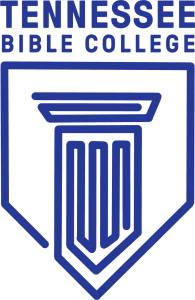A study of the beginnings of formal philosophy in ancient Greece with an emphasis on the works of Plato and Aristotle.
- Teacher: David Hill
- Teacher: Kerry Duke
- Teacher: Kerry Duke
This two part course will focus on answering some, not all, questions with respect to Inspiration and the ultimate authority of Scripture (see 2 Tim. 3:16-17). It will be necessary to become familiar with terms and definitions related to this challenging subject. We will explore internal and external evidences (apologetics) as we will seek to determine whether or not the Bible is inspired by God or a work of uninspired men.
- Teacher: Kerry Duke
This course will answer the question, "Is Jesus Christ the Son of God?" The gospel of John will be used as a basis for this study.
- Teacher: Kerry Duke
A study of the principles of formal deductive logic. Emphasis will be given to the law of rationality and evasions of it, the syllogism, the three laws of thought, and the biblical use of logic.
Requirements for Deduction:
1. Students are responsible for listening to each lecture (all nine of them). The student should obtain a copy of Lionel Ruby's book, Logic, An Introduction. The lectures are based on chapters six through twelve of Ruby's book.
2. The student will be responsible for the material in each lecture. His final grade will be the average of the scores made on the tests for all the chapters. There will be a test on each chapter.
3. Anyone in the doctoral program will also be required to read (1) Logic and the Bible and (2) When Is An "Example" Binding? by Thomas B. Warren.
Material to be Covered in This Course (See the table of contents in Ruby's Logic book)
1. The difference between assertions and logical arguments. The law of rationality and the various evasions of it (Chapter 6).
2. The syllogism, the four types of propositions; subject and predicate relationship; the distribution of terms (Chapter 7).
3. Analyzing the categorical syllogism; rules of the syllogism; diagramming the syllogism (Chapter 8).
4. The syllogism and semantics; Putting sentences into proper form for syllogistic purposes; Equivalence (Chapter 9).
5. The syllogism and normal conversation; the number of terms possible and essential to the syllogism; analyzing the syllogism in normal conversation; the enthymeme and the sorites; the kinds of relationship between terms (Chapter 10).
6. The relationships of propositions to each other; the seven relationships possible; the square of opposition; the "laws of thought" (Chapter 11).
7. Compound propositions; hypothetical propositions; alternatire propositions; the conjunctive proposition and the negated conjunct; the dilemma (chapter 12).
- Teacher: Kerry Duke
The final course in a series of courses tracing the historical development of Western philosophy.
- Teacher: David Hill
Course Syllabus
A451 Existence of God is a rigorous consideration of the logical proofs for the existence of God, with special emphasis on the cosmological, teleological, moral, biblical, and ontological arguments.
Reading - 20%
Tests - 40%
Term Paper - 40% (approved topic - submit proposal by the end of week three; 15 page maximum length)
You will need access to the following sources:
- The Warren-Flew Debate
- There is a God, Antony Flew
- Mere Christianity, C. S. Lewis
- The Five Ways of Aquinas in his Summa Theologica (Pt. 1, Q. 2, Art. 3)
- "The Watch and the Watchmaker" in Natural Theology by William Paley
- Transcript of a Debate on the Existence of God between Bertrand Russell and F. C. Copleston on BBC radio
- "Theology and Falsification" by Antony Flew
- Teacher: Kerry Duke
2. Isaiah
3. Summa Theologica, Pt. 1, Question 25 by Thomas Aquinas
4. The City of God, Bk. 11, ch. 4, 5, 21 by Augustine
- Teacher: Kerry Duke
- Teacher: Donny Weimar
